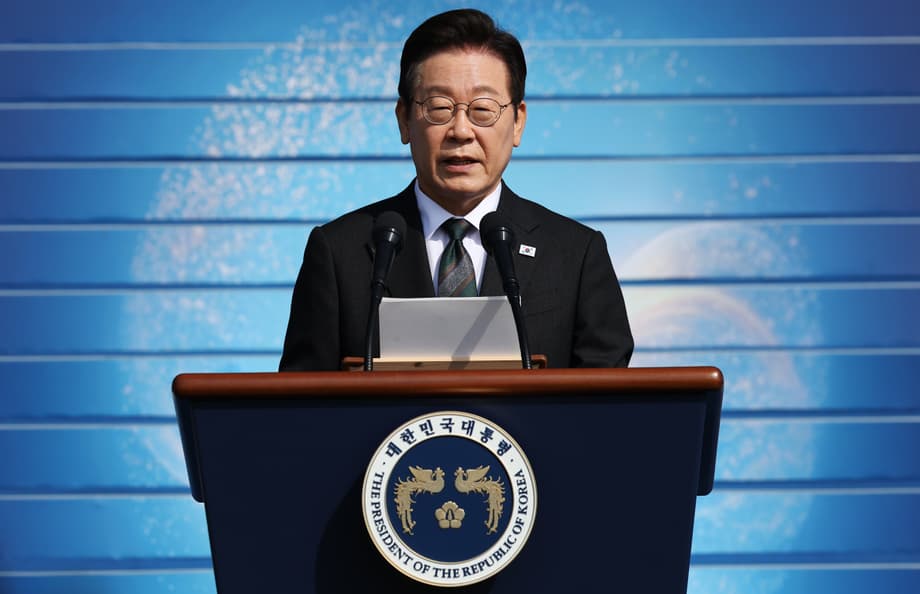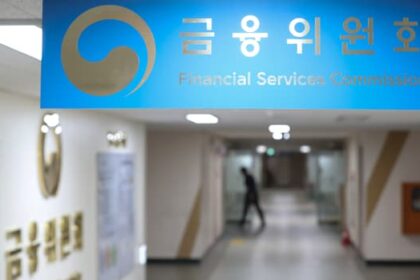A case that shocked two countries
South Korea has launched an urgent diplomatic and law enforcement push after the killing of 22 year old university student Park Min ho in Cambodia, a case authorities link to a criminal ring that recruits foreigners through fake jobs and coerces them into online fraud. President Lee Jae Myung directed ministries to mobilize all available resources to protect nationals, to repatriate those trapped in compounds, and to support a joint investigation into the death. Cambodian prosecutors have charged three Chinese nationals with murder and online fraud. Police say two other suspects remain at large and search operations continue.
- A case that shocked two countries
- What happened to Park Min ho
- Inside the job scam pipeline in Cambodia
- A surge measured by the numbers
- Seoul’s response, from travel bans to a Korean Desk
- Arrests and suspects in Cambodia
- Cooperation challenges and the Cambodian position
- A recruiting network at home
- Inside scam compounds, survivor accounts
- What travelers and job seekers can do now
- At a Glance
Park traveled to Cambodia in July after telling his family he would attend a job fair. Within days, relatives received a ransom demand of around 50 million won by phone. Contact ceased after several days. His body was found on August 8 in a pickup truck near Bokor Mountain in Kampot Province, a region linked by investigators and rights groups to scam compounds and trafficking. Cambodian authorities reported signs of severe torture. An autopsy cited cardiac arrest brought on by repeated beatings, according to officials familiar with the findings.
The case has triggered a wider reckoning over cross border scam networks that prey on job seekers. Reports of South Koreans held against their will in Cambodia rose from 17 in 2023 to 220 in 2024, then reached about 330 by August 2025. Many victims describe a familiar pattern, with recruiters promising high pay and even free airfare, passports seized after arrival, confinement inside guarded facilities, and escalating violence including beatings or electric shocks for those who resist. South Korea has now imposed targeted travel bans and is preparing a joint police presence in Cambodia. Cambodian officials have pushed back against claims of inaction and say they are cooperating with Korean counterparts.
What happened to Park Min ho
Park, a university student in his early twenties, left South Korea on July 17 after telling his family he would attend an event in Cambodia. Within a week, his family received a ransom call demanding money for his release. Communication stopped after several days. Investigators say his body was discovered near Bokor Mountain in Kampot, a province that officials describe as a location for crime compounds. Cambodian authorities reported that he died after severe torture, with extensive bruising. A witness who was confined in the same facility told investigators that Park had been beaten to the point that he could not walk or breathe and died while being taken to a hospital.
Timeline from recruitment to discovery
Authorities in both countries believe Park was drawn in by a fraudulent job offer, a tactic that has become common across the region. Recruiters often reach out through social media or messaging apps and stage convincing video interviews. Families of victims describe scripted calls and ransom demands in the early days of captivity. In Park’s case, relatives received a call seeking about 50 million won. The calls stopped, and his body was found weeks later. Cambodian prosecutors charged three Chinese nationals with murder and online fraud. Two other suspects remain at large, and investigators believe a wider network orchestrated the operation.
Park’s remains have not yet returned to South Korea. Seoul is pressing for a joint autopsy and access to case records to answer remaining questions about the final hours of his life. His relatives say the prolonged delay has deepened their pain. Family members described the situation as “killing him twice.”
Park’s family said the prolonged delay in returning his remains felt like “killing him twice.”
Inside the job scam pipeline in Cambodia
Across Cambodia, organized groups recruit foreign job seekers with promises of high salaries and easy work. Applicants are told they can earn large sums doing simple translation, customer support, or data entry. Some are offered airline tickets and accommodation as a sign of goodwill. Once a recruit arrives, guards confiscate passports, phones, and valuables. Victims are moved to guarded buildings where windows are barred and exit points are controlled by security teams. Many report a cash penalty for any failed escape attempt, along with violence and forced labor.
Criminal groups typically force captives to run online scams. Voice phishing targets bank customers, romance scams trick people into sending money, and fake investment schemes pull victims into cryptocurrency fraud. Survivors say the work is tightly scripted, with software dashboards, phone scripts, and daily performance targets. Those who resist face beatings, electric shocks, food deprivation, or sale to another operator. Some centers run on a franchise model. One core group supplies facilities, software, and oversight while smaller cells manage day to day fraud and send a cut of profits up the chain.
Security experts describe a fluid marketplace that buys and sells people between compounds. Border towns such as Poipet and Bavet have developed reputations as the last stop for those who fall out of favor. A South Korean survivor said the most dangerous sites were in those border areas, and that violence was routine in the worst facilities. Testimonies gathered by rights monitors include allegations of torture and threats of organ removal. These accounts underscore the fear many captives face, although such claims are difficult for outsiders to verify.
A surge measured by the numbers
South Korean data shows a dramatic rise in cases over a short period. Officials recorded 17 reports in 2023 of nationals being held in Cambodia, followed by 220 in 2024. As of August 2025 the figure had already reached about 330. The wider scope is even larger. South Korea estimates that around 1,000 of its nationals are involved in Cambodia’s scam industry, with many coerced by threats or violence. Officials say 63 South Koreans are currently in Cambodian detention after police raids on scam sites, and the number of people whose safety could not be confirmed has fallen from early estimates to roughly 80 in recent counts.
Rights groups describe a regional industry that spans Cambodia and Myanmar and targets people worldwide. Amnesty International has identified at least 53 large scale scam compounds in Cambodia alone. International enforcement actions have targeted the money side of the ecosystem, with governments seizing assets and sanctioning individuals who profit from forced labor linked to cryptocurrency fraud and other schemes. Some analysts estimate that hundreds of thousands of workers of many nationalities are being exploited across the region.
- Reports of South Koreans held in Cambodia: 17 in 2023, 220 in 2024, about 330 by August 2025
- South Koreans believed involved in Cambodia’s scam industry: around 1,000
- South Koreans currently detained following raids: 63, with repatriation flights planned
- At least 53 scam compounds identified in Cambodia by rights monitors
Seoul’s response, from travel bans to a Korean Desk
Seoul has moved quickly to limit exposure and improve rescue operations. The government issued a code black travel ban for parts of Cambodia that officials link to scam compounds. The restricted zones include the Bokor Mountain area in Kampot Province, Bavet, and Poipet. Citizens face penalties under the Passport Act if they enter these areas. Travelers already there have been urged to leave. Authorities are arranging flights to bring home nationals detained after police raids, and say those repatriated will be questioned for potential involvement in criminal activity. Officials emphasize that the priority is recovery and safety but that participation in fraud will be investigated in line with Korean law.
South Korea is also setting up a Korean Desk in Cambodia to connect Korean officers directly with local police. The team will be led by senior officials from the Foreign Ministry, the National Police Agency, and the National Intelligence Service. The head of the National Office of Investigation plans to coordinate repatriations, push for access to case records, and discuss a joint probe into Park’s death with Cambodian authorities. Seoul says it will try to bring back citizens even if they are unwilling to return, citing the need to separate victims from criminal groups and to prevent further harm.
President Lee has framed the issue as a duty of the state. He told ministers that the government must respond with clarity and speed. In a cabinet meeting, he called for a response that is prompt, accurate, and decisive.
President Lee Jae Myung urged a response that is “prompt, accurate, and decisive,” and directed ministries to use every available resource to protect citizens and bring them home.
Arrests and suspects in Cambodia
Prosecutors in Cambodia say three Chinese men have been detained and charged with murder and online fraud in connection with Park’s death. Two other suspects are being sought. Investigators say Park’s body was found in a pickup truck and that he had been tortured. Officials also reported that an autopsy concluded cardiac arrest caused by repeated beatings.
South Korean media have linked one suspect to a drug case investigated in Seoul in 2023 that involved narcotics laced drinks distributed to students in the Daechi neighborhood. Police are examining possible ties between that figure, identified locally as Li, and the network that allegedly confined Park. The case highlights the cross border nature of the groups. Korean investigators say criminal teams move easily between fraud, drug distribution, and trafficking, depending on where pressure is weakest.
Cooperation challenges and the Cambodian position
Cooperation between Korean and Cambodian police has been uneven. Korean officials say requests to join the autopsy and to access case records have been slowed by formal procedures that require mutual legal assistance routed through justice and foreign ministries. Police in Seoul have explored using Interpol and direct visits to speed coordination, but say progress has been limited at times. The planned Korean Desk is intended to shorten response time and create a regular channel for urgent cases.
Cambodia’s Interior Ministry has contested parts of the narrative circulating in Korea. Officials say they did not receive complaints from Park’s family or the Korean Embassy before his body was found, and that they are cooperating with Korean authorities now. Phnom Penh has signaled a crackdown on online scams and illegal gambling, with mass deportations of foreign workers in recent years. Senior officials say they will work with Korea on joint investigations and regular briefings, but the sheer scale of the problem makes quick results difficult.
A recruiting network at home
South Korean police have opened a broader investigation into local recruiters who act as the first link in the chain. Investigators in North Gyeongsang Province are tracing a domestic fraud group that allegedly funneled people to Cambodian syndicates. Police are focusing on a man in his twenties, identified by the surname Hong, who has been indicted for acquiring ghost bank accounts. Authorities believe Hong was a senior at the same university as Park and may have introduced him to the overseas network. The group is said to operate in a cell based structure designed to limit exposure if one member is caught.
Other cases have emerged. In Ulsan, a man in his twenties took what appeared to be a legitimate overseas job in 2023 and was forced to work at a phishing call center for nearly two years. He later told police he had sought help from the local police and the Korean Embassy without success and eventually escaped after monitoring slackened. He was arrested upon return for his role in the fraud, highlighting the legal challenges in separating victims from participants. Police say they have identified dozens of suspects tied to Cambodian call centers and have issued international notices for others.
On Jeju Island, families reported kidnappings linked to Cambodia. One young man returned after relatives paid a ransom in cryptocurrency. Another escaped confinement with assistance from a local Korean resident. Authorities say the pattern of false recruitment, confinement, and extortion is now familiar to police across several regions.
Inside scam compounds, survivor accounts
Survivors paint a grim picture of daily life inside the facilities. Guards confiscate phones and passports. Windows are barred and exits monitored. Shifts run long hours and include targets for phone calls or digital chats. Training sessions teach scripts for romance fraud, fake investments, or bank call impersonations. Refusal or poor performance can mean beatings, electric shocks, or sale to another compound. Victims say that punishment is often public to enforce compliance. Border towns such as Poipet and Bavet are described by survivors as the most dangerous end of the pipeline, where the likelihood of violence is highest.
Some survivors have alleged that threats of organ removal were used to terrorize detainees in the worst facilities. These accounts have circulated in interviews and rights reports. Independent verification can be difficult given the secrecy around the compounds, the transitory nature of the workforce, and the risks for anyone who tries to investigate. The consistent pattern of coercion, confinement, and violence is well documented by multiple national investigations and international human rights groups.
What travelers and job seekers can do now
The greatest protection is to avoid exposure. South Korea’s code black travel ban for Bokor Mountain, Poipet, and Bavet carries penalties. Authorities strongly urge citizens to cancel trips to those areas. For anyone considering work abroad, several warning signs repeat across cases.
- Be wary of job offers that promise very high pay for simple tasks or that rush you to decide.
- Treat prepaid airfare or offers to hold your passport as a red flag.
- Insist on clear written contracts and verify the company through official registries and independent contacts.
- Refuse to surrender your passport, phone, or valuables after arrival in any country.
- Share itineraries with family, enable location sharing, and schedule regular check ins.
- Contact Korean consular services immediately if a situation feels unsafe or a recruiter changes the destination or job terms at the last moment.
South Korea has set up hotlines and is deploying a special team to Cambodia. The Korean Desk is intended to reduce the lag between distress calls and police action, and to give Korean investigators direct lines into local stations. Officials say they will continue to arrange repatriation flights for nationals caught up in raids. Those returning may face questioning about their roles inside the compounds, a step that aims to distinguish coercion from participation.
At a Glance
- Park Min ho, 22, died after severe torture in Cambodia, according to local authorities and an autopsy that cited cardiac arrest caused by beatings.
- Cambodian prosecutors charged three Chinese nationals with murder and online fraud, and two suspects remain at large.
- Reports of South Koreans held in Cambodia rose from 17 in 2023 to 220 in 2024 and about 330 by August 2025.
- South Korea imposed a code black travel ban for Bokor Mountain, Poipet, and Bavet and is arranging repatriation flights.
- A Korean Desk will link Korean officers directly with Cambodian police to support rescues and joint investigations.
- Officials say 63 South Koreans are detained after raids on scam sites, and about 80 people remain unaccounted for.
- Rights groups have identified at least 53 scam compounds in Cambodia, part of a regional industry using coercion and forced labor.
- South Korean police are investigating domestic recruiters, including a suspected university senior who may have introduced Park to the network.












